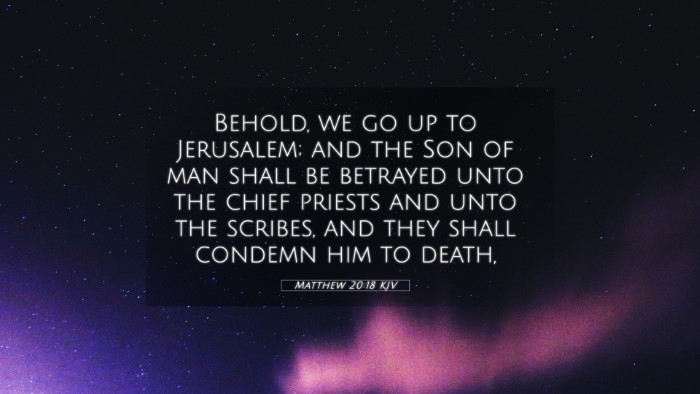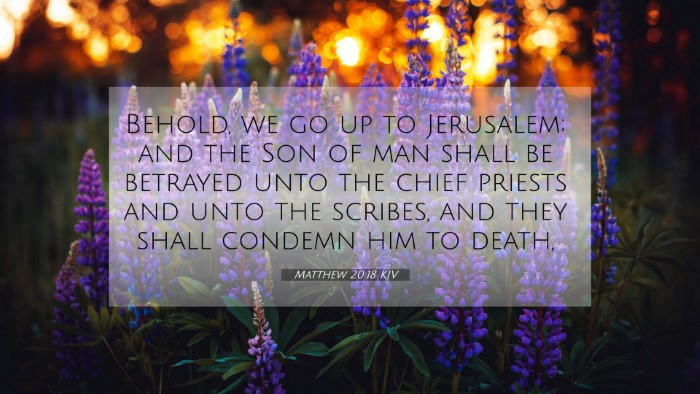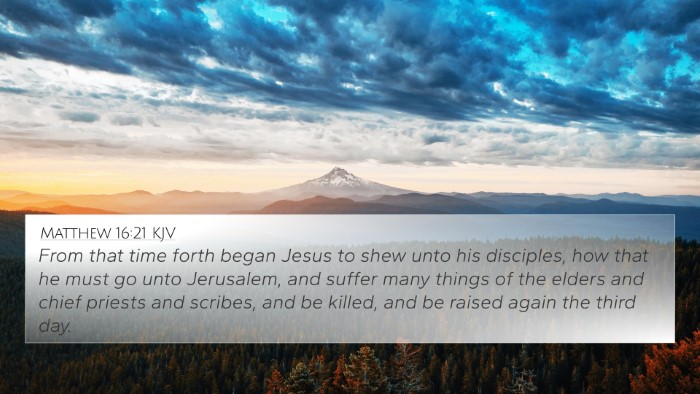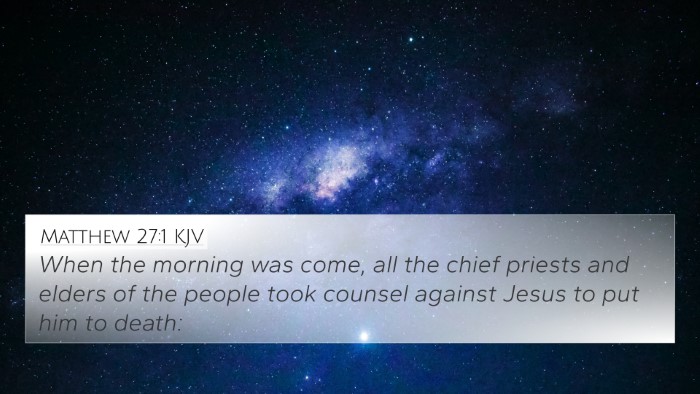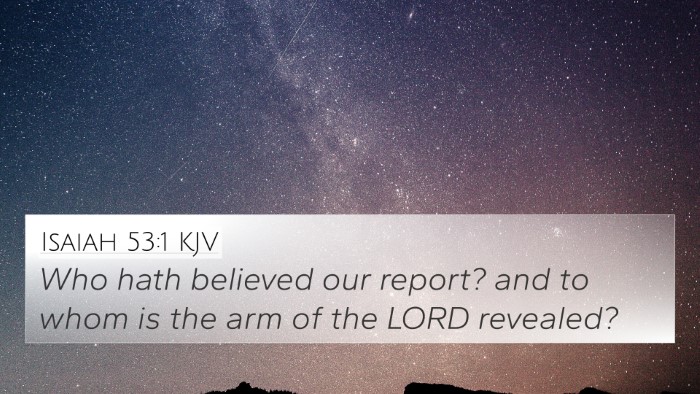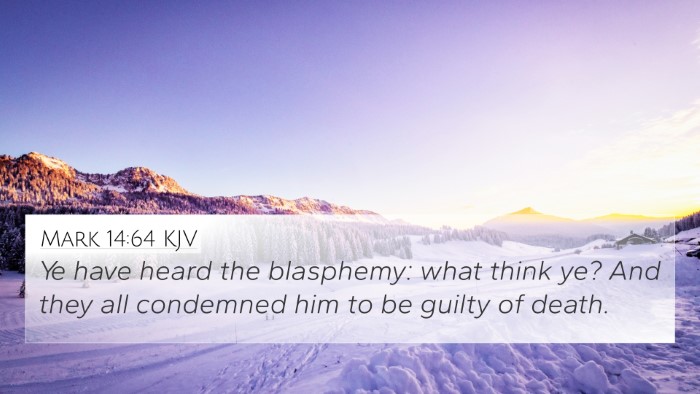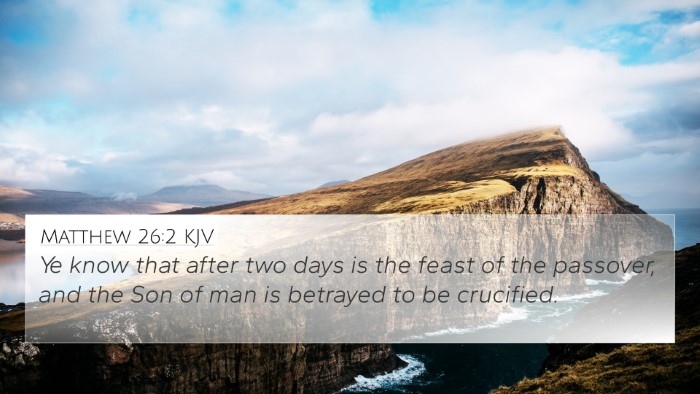Understanding Matthew 20:18
Verse: "Behold, we go up to Jerusalem; and the Son of man shall be betrayed unto the chief priests and unto the scribes, and they shall condemn him to death." - Matthew 20:18 (KJV)
Summary and Meaning
This verse serves as a prophetic declaration by Jesus regarding His impending suffering and death. The statement begins with "Behold," a word that draws attention and signifies the importance of what follows. Here, Jesus prepares His disciples for the events that will unfold in Jerusalem, underscoring the inevitability of His passion.
Insights from Commentaries
-
Matthew Henry: Henry emphasizes that Jesus is deliberate in revealing the forthcoming events. He speaks concerning His betrayal, highlighting the betrayal's treachery, which comes from those who should uphold the law, the chief priests and scribes. This foreshadowing serves as a reminder of the gravity of sin and the fulfillment of God's redemptive plan.
-
Albert Barnes: Barnes notes that Jesus' tone is one of forewarning. He stresses that the Son of Man (a title Jesus uses for Himself) will face condemnation from the religious leaders. This anticipates a broader theme of rejection and highlights the conflict between Jesus and the established religious order.
-
Adam Clarke: Clarke elaborates on the significance of Jerusalem as the setting for these events. He underscores that Jesus is aware of the path laid out before Him and willingly submits to it as part of the divine plan. He also notes that betrayal is a grave sin, denoting disloyalty to someone dear.
Thematic Connections
This verse connects with multiple themes in scripture, illustrating the nature of prophecy, the suffering servant motif, and the betrayal narrative found throughout the Gospels. Here are some thematic Bible verse connections relevant to Matthew 20:18:
- Isaiah 53:3-5: Prophecy about the suffering servant who is despised and rejected.
- John 19:16: The culmination of the betrayal as Jesus is delivered to be crucified.
- Luke 22:22: Jesus speaks of woe to the one by whom He is betrayed, aligning with the themes of betrayal and judgment.
- Matthew 26:14-16: The account of Judas Iscariot’s actions leading to the betrayal demonstrates foreboding parallel to the predictions made in Matthew 20:18.
- Mark 14:10-11: Further detailing of Judas' betrayal for money, creating connections between prophecy and fulfillment.
- Psalm 41:9: A scripture highlighting betrayal from a close friend, which Jesus alludes to regarding His disciples.
- Acts 2:23: Peter’s sermon relates the betrayal and crucifixion to God’s sovereign plan, delineating the fulfillment of Jesus' foretelling.
Cross-Referencing in Scripture
The connections between Bible verses throughout the scriptures reveal a pattern of God's redemptive history, particularly in how prophetic verses resonate with New Testament narratives. This cross-reference provides tools for deeper understanding in Bible study.
Cross-Referenced Themes
Matthew 20:18 can be studied alongside several other verses that address themes of suffering, betrayal, and prophecy. Utilizing a Bible concordance or a Bible cross-reference guide can enhance one's understanding of these interconnected themes and scriptures.
Tools for Effective Cross-Referencing
For those engaging in lessons or sermon preparations, the following resources can be invaluable:
- Bible concordance: Assists in finding specific words and their occurrences throughout scripture.
- Bible cross-reference guide: Offers a systematic approach to linking Bible scriptures based on themes and events.
- Bible chain references: Provides a method of following related scriptures and understanding their interconnections.
- Cross-reference Bible study methods: Engaging multiple verses together can lead to rich insights and deeper understanding.
- Comprehensive Bible cross-reference materials: Essential for any serious Bible student seeking to explore thematic connections effectively.
Conclusion
Matthew 20:18 serves not only as a pivotal moment in the life of Jesus but also as a profound connection point for understanding the overarching narrative of scripture. The act of cross-referencing provides a framework to explore the rich tapestry of Biblical themes, fulfilling the purpose of deepening our comprehension of God's word.

